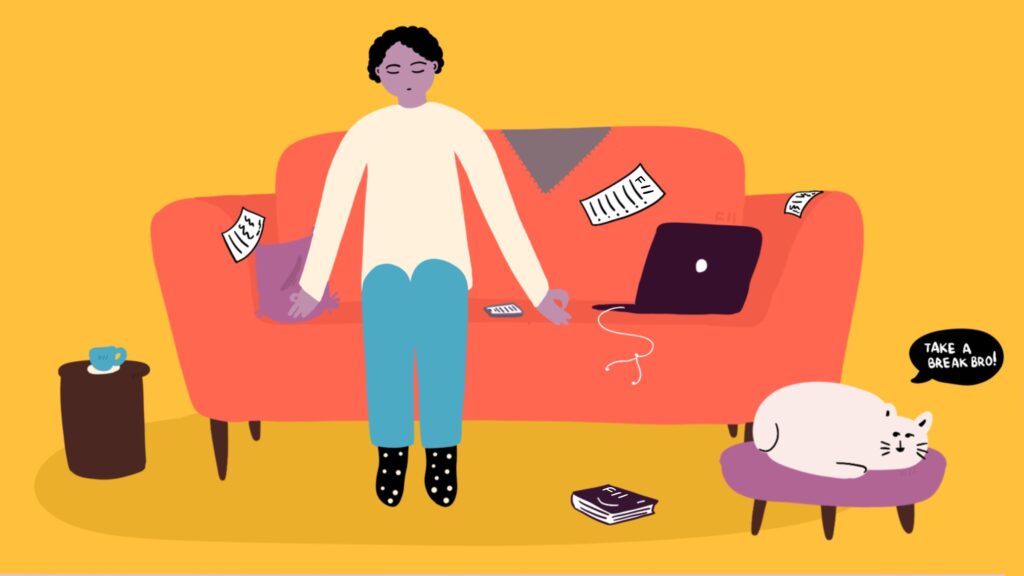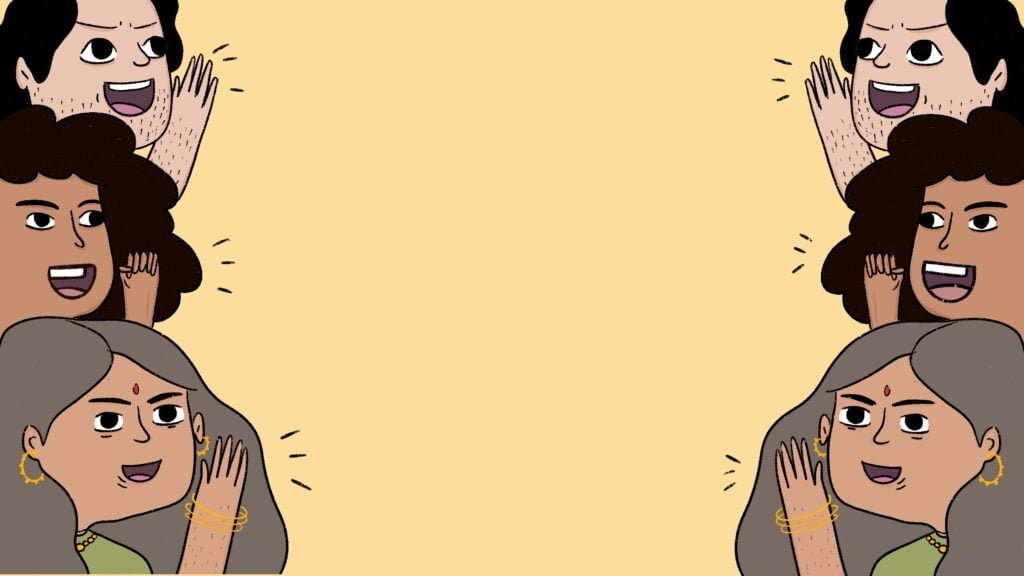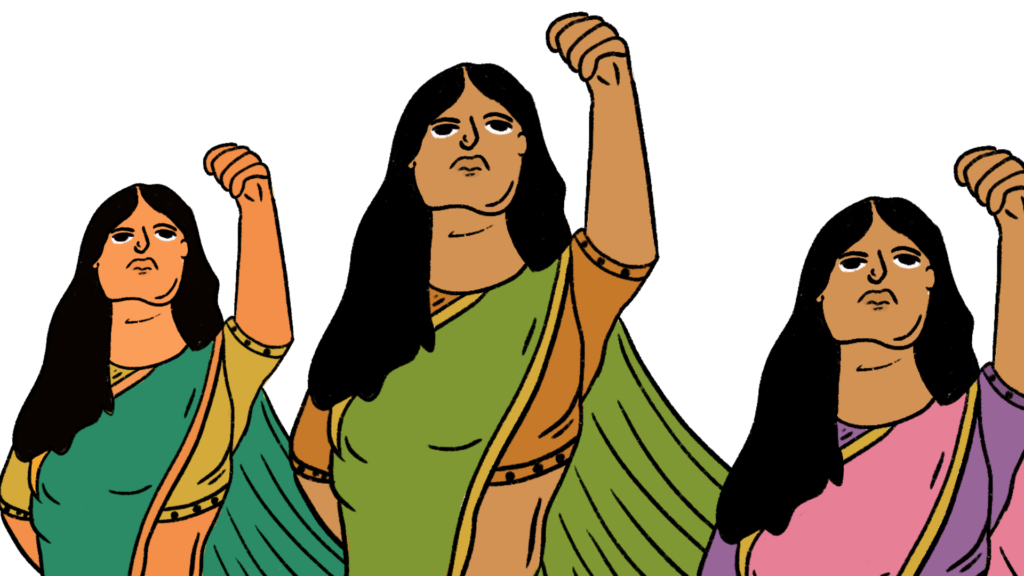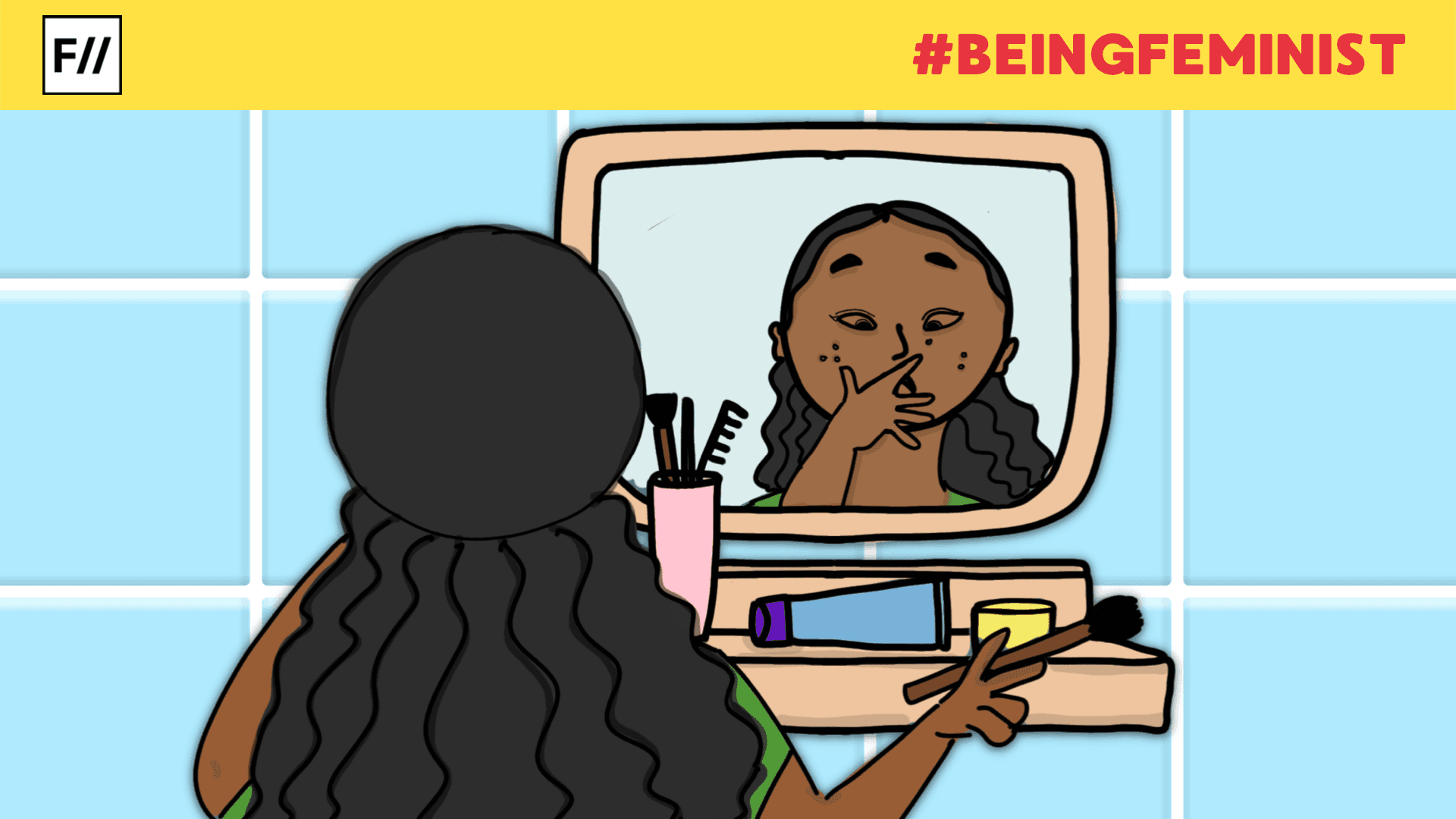Editorial Note: Being Feminist is a fortnightly column that features personal narratives documenting the emotions, vulnerabilities and innermost contradictions every feminist encounter while trying to push through various degrees of patriarchy in private, professional and public spaces.
I am on the road to becoming a graduate and I believe everyone is battling, and let’s be nice and stop judging one’s boundaries. In the coming April, I turn twenty-one, the age when every individual starts comprehending the significance of the future, family, and academics, and when we see, everyone striving to build a perfect career. The time when questions from friends, relatives, neighbours, and others set out to damage our minds.
At the end of the day, people are tied up with tasks, and assignments. There is immense mental pressure on the one hand and struggling to answer the queries of others on the other hand. The percentage of time we take ourselves to sum up day-to-day pursuits perhaps lets us zone out of temporary things, which we feel are considerably not important at a certain point in time.

When we start realising that everyone is going through their struggles and battles, showing kindness is a long way in making smile someone or making one’s day a little brighter. Small acts of kindness such as listening, keep checking your loved ones if they are not online for more than hours and calling and asking how your day was can make a big difference to each of us.
Also Read: Gaining Confidence In My Feminist Identity
Counting my twenty years of living life, in which since my twelfth standard I started to apprehend the implication of identifying myself. The hostel life has taught me where I should start. I learned to live myself, without the aid of my parents in cooking, learning new things, cleaning, and many more. However, I struggled a lot in making friends. The lessons of life I obtained from my new schooling and hostel life were completely dissimilar from what I experienced earlier.
It was my first time in a school in Kerala I see teachers, as well as students, speak only in English all the time. During break time as well, people used to speak in English or Hindi casually. Even though they are Malayalis, most of them did their schooling in different cities like Delhi, and Mumbai.
I remember my tenth grade when I and another girl in the class were the only two who were good at writing essays in English. Teachers used to call only two girls in the entire school for essay competitions. Despite I was good at speaking and writing in English I suddenly became a silent cat when I jumped into twelfth grade. The time I conceded the fact that I was in the wrong place the whole year till my tenth grade. Even though I procured a good ability in writing, in my later years I started to see a school full of students that are ten times more competent than me in essays. Today when I address this in public, I’m not afraid or ashamed. Quite the opposite, I feel proud of myself for the reason I could at least understand it was a step in the process of life is becoming.

Having said that, my twelfth grade was a pack of good people and good lessons. When I look back, it was my best two years. The people I had in school were a token of love and kindness. I welcomed an atmosphere that was distinctive from what I have seen earlier. It was my classmates who helped me to stand strong. They have uplifted me in each phase.
Also Read: Navigating Through The ‘Marriageable Age’ As An Only Child While Being A Feminist
I remember the principal and other class teachers used to appreciate our class, particularly for the culture we started which is ‘clapping hands‘. One of the students started doing it, and eventually, the whole class followed the culture. Even though there is nothing considerably special, we used to compliment. Some teachers did comment, the whole class is absurd, and, why we are clapping hands for every little thing.
Today I understand the importance of that clapping culture. In a world, we all are jealous of someone’s achievements and worried to appreciate one person for what good things they did, even if it is big or small. Accepting people, respecting their boundaries, and being kind can help build stronger relationships. It enables a feeling of community and support and can create a cheerful environment where everyone feels valued and recognised.
Everyone is unique, regarded by their character, experiences, and challenges. It is crucial that show kindness, the benevolence can help create empathy and compassion. Whether it is a ‘smile‘, a kind word, or a small act of courtesy, each of us can make a positive difference in the lives of others. More than forming gangs including only people of similar tastes, let us be one group of humans where each one is valued individually.

Having said that, kindness can help foster one individual. It is important to identify where it comes from. It varies according to each individual. For me, feminism is a safe place where I can freely express my thoughts, and opinions inclusive of every gender, identity, class, culture, and many others. Feminism is not a concept only for the upliftment of every gender, it is a work ethic and a non-stressful atmosphere. It provides a sense of community and support, as well as a platform for raising awareness, and addressing personal opinions, and important issues affecting individuals of all gender. However, feminism is not directly linked to the act of kindness, respecting boundaries, or normalising the response of ‘no‘ but is interconnected with the concept of the use of ‘no‘ as an important aspect.
In many places, inside and outside, when I used to say ‘no‘, the difficulty of saying no to someone important to us is not an easy process. It is arm-twisting. Particularly as a women social class, I have faced many questions from my relatives concerning gender, colour, disability, and many others. It is that much significant that if a person would like to zone out, we should let them be. Moreover, it is not banality to try to listen to your loved ones. If we can either help them to make a solution or not, normalising and accepting the situations of one person is not like breaking your connection with them, rather it is giving space for them to assimilate their thoughts.
Feminism seeks to challenge the societal structures and systems that contribute to gender-based violence, and discrimination, including sexual harassment and assault. By promoting the culture of consent and respect, we can help formulate a world where everyone is valued and respected as they are with their boundaries.
By questioning one individual’s identity we are not driven to attain kindness, instead what it can create is a spark of anxiety only. Similarly, normalising the use of ‘no‘ which is a part of kindness, is also an important part of feminism. It is critical to ensure that all individuals have agency over their assertion, speech, bodies, or whatever, and they are empowered to make their own choices.






